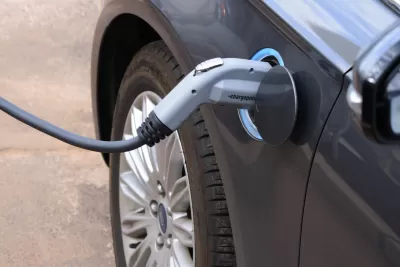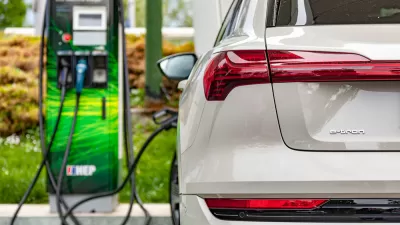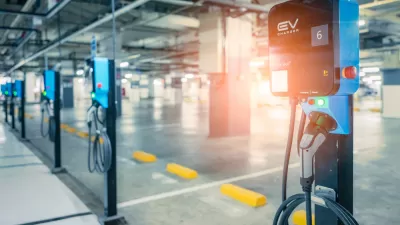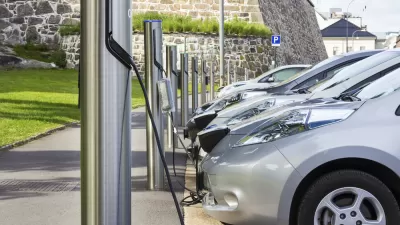As soon as a few years from now, electric sedans will cost the same as an equivalent gas vehicle. A team at Carnegie Mellon University is researching how long it will take for other types of electric vehicles to catch up.

A team of researchers at Carnegie Mellon University, led by Venkat Viswanathan, developed a model to track the cost of components of electric vehicle batteries to understand the total cost and predict changes. "At some point, probably sooner than you expect, the price of an all-electric vehicle will fall far enough to equal the cost of an equivalent gasoline vehicle," writes Dan Gerino. Gerino reports that this equivalent cost (a $100 per kilowatt-hour battery price) could come as soon as 2023 and certainly by 2025. As of 2019, the kilowatt-hour battery price was as low as $156 as compared to over $1,000 kilowatt-hour battery price in the early 2010s.
"Viswanathan said cost parity will arrive first for small sedans that now sell for $30,000 or less. It will take longer for automakers to develop electric trucks and SUVs that cost about the same as similar gasoline models," reports Gerino. Given the extra towing power of SUVs, batteries made for larger vehicles amount to greater costs. The future addition of new electric SUV models should transform the market in which EVs account for only 2% of new vehicles sold.
FULL STORY: Inside Clean Energy: How Soon Will An EV Cost the Same as a Gasoline Vehicle? Sooner Than You Think.

Maui's Vacation Rental Debate Turns Ugly
Verbal attacks, misinformation campaigns and fistfights plague a high-stakes debate to convert thousands of vacation rentals into long-term housing.

Planetizen Federal Action Tracker
A weekly monitor of how Trump’s orders and actions are impacting planners and planning in America.

Chicago’s Ghost Rails
Just beneath the surface of the modern city lie the remnants of its expansive early 20th-century streetcar system.

Bend, Oregon Zoning Reforms Prioritize Small-Scale Housing
The city altered its zoning code to allow multi-family housing and eliminated parking mandates citywide.

Amtrak Cutting Jobs, Funding to High-Speed Rail
The agency plans to cut 10 percent of its workforce and has confirmed it will not fund new high-speed rail projects.

LA Denies Basic Services to Unhoused Residents
The city has repeatedly failed to respond to requests for trash pickup at encampment sites, and eliminated a program that provided mobile showers and toilets.
Urban Design for Planners 1: Software Tools
This six-course series explores essential urban design concepts using open source software and equips planners with the tools they need to participate fully in the urban design process.
Planning for Universal Design
Learn the tools for implementing Universal Design in planning regulations.
planning NEXT
Appalachian Highlands Housing Partners
Mpact (founded as Rail~Volution)
City of Camden Redevelopment Agency
City of Astoria
City of Portland
City of Laramie





























